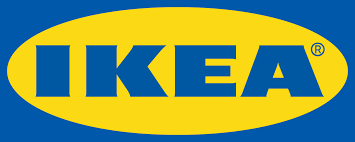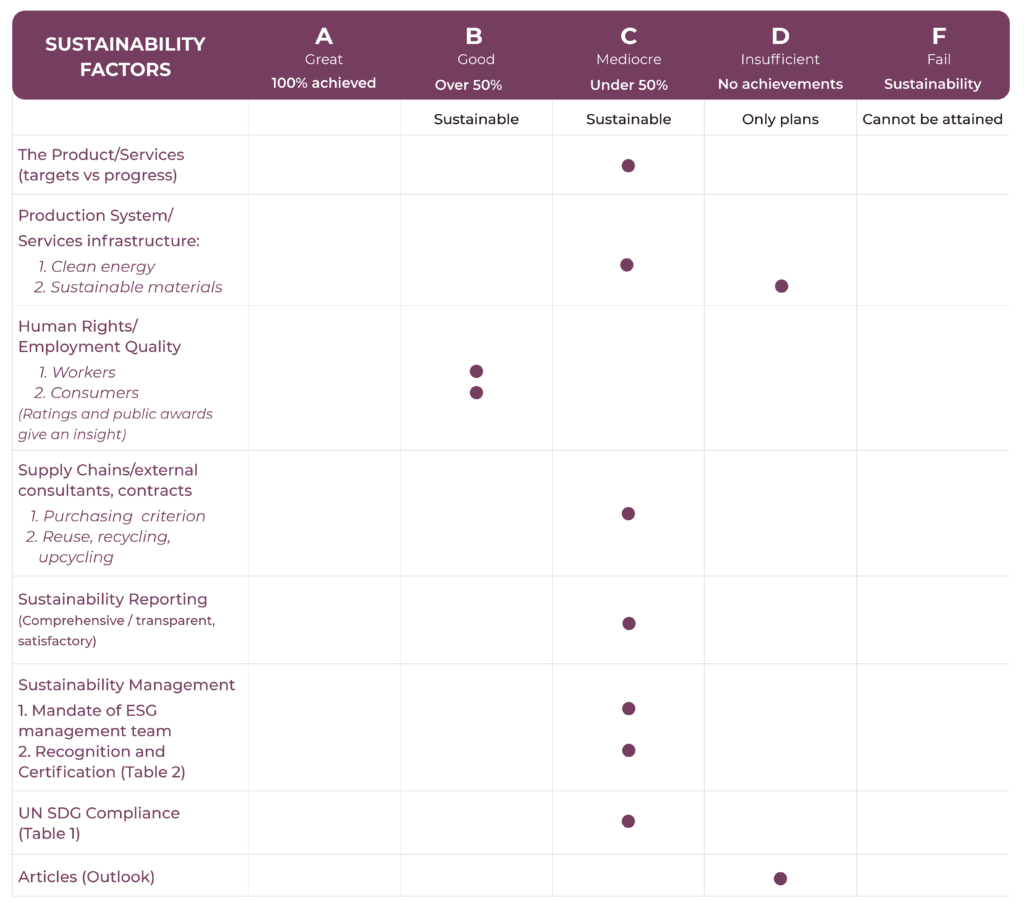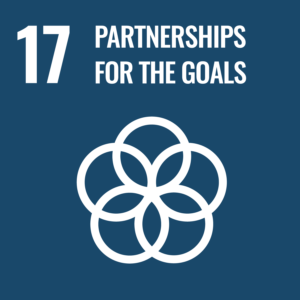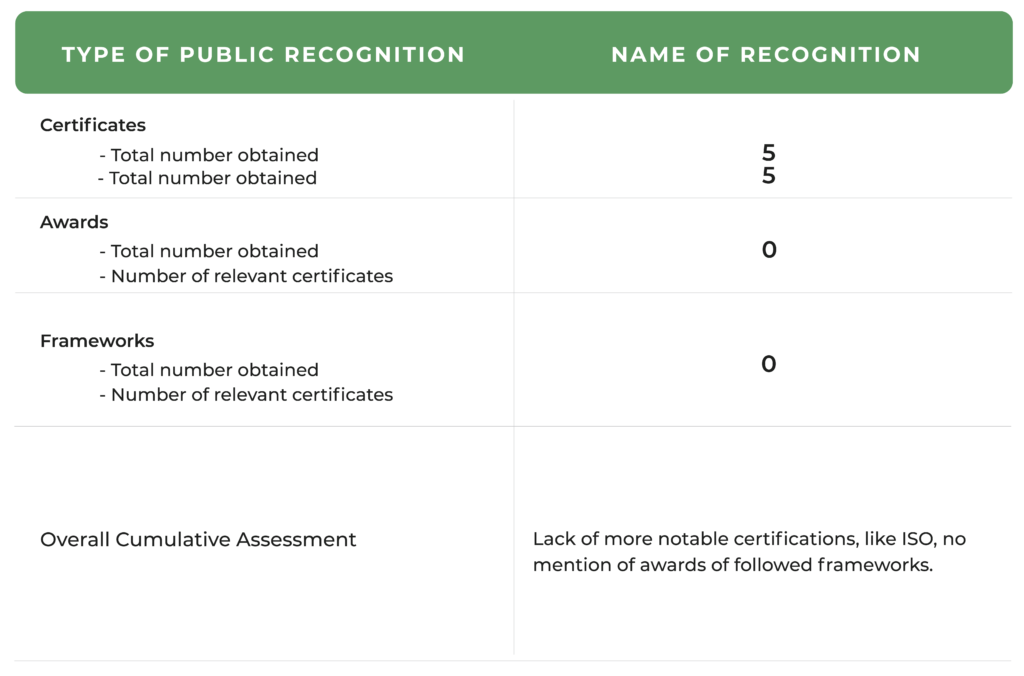
RATING

Outlook
Neutral
SECTOR
Retail sale of electrical household appliances, furniture, lighting equipment and other household articles in specialized stores
Chief Sustainability Officer
T: N/A
E-mail: N/A
Stock Exchange and Ticker
N/A
Website
Contact
T: +31-62 124 0618
E.mail: N/A
Listing
Not mentioned by IKEA
Awards
Not mentioned by IKEA
Revenue
Market Capitalisation
N/A
Employees
225,000
Content source
IKEA Sustainability Report
Evaluation of IKEA
Ikea invested mostly on certification of its raw materials in the production chain, such as wood, cotton or food. Unfortunately the retail giant lacks industry-wide certificates. The company is in the process of decarbonisation and transformation into a circular business, which if reached by 2030 will pave the way for other companies. Even though in many aspects sustainability reporting is clear and factual, it still lacks definitive KPIs, cross-company renewable energy use or progress towards some goals.
Furthermore, even with an array of claims on responsible materials sourcing, the company got entangled in greenwashing and other accusations. For instance, even though 99.5% of the wood used for IKEA products is either Forest Stewardship Council®-certified (FSC®) or recycled (which should be the basis across our economy) the company was met with virgin forest logging controversies. Such cases aren’t so straightforward, as many involved parties were at fault. Nevertheless we hope Ikea will take bold steps across its operations and management to never let it happen again.
The company lacks industry-wide standards and adherence to frameworks.
In conclusion, Ikea has been rated again C, without any remarkable progress since the previous Index investigation.
Sustainability Scorecard

IKEA Company Activity
Ingka Group (Ingka Holding B.V. and its controlled entities) is one of 12 different groups of companies that own and operate IKEA retail under franchise agreements with Inter IKEA Systems B.V. Ingka Group consists of three business areas, IKEA Retail, which consists of 374 IKEA stores across 30 markets, and counting, Ingka Centres and Ingka Investments.
IKEA is a leading company known for home-furnishing and low-price furniture. The company sells ready-to-assemble furniture, kitchen appliances and home accessories, among other useful goods and occasionally home services. IKEA operates 422 stores in more than 50 markets. IKEA’s vision is to create a better everyday life for the many people while sustainably sourcing materials, advocating for human rights and incorporating democratic design.
IKEA Sustainability Activity - As per company declarations
The IKEA Group is committed to creating products and services that inspire and support people to make positive lifestyle changes, consume more sustainably and live better everyday lives within the limits of the planet. IKEA is dedicated to combining good form, function and quality with built-in sustainability, at prices so low that as many people as possible can afford them.
Sustainability is becoming an integrated part of their business and is one of the strategic cornerstones in the IKEA Group direction “Growing IKEA Together”. Sustainability at IKEA means ensuring environmental, economic and social well-being for today and tomorrow while living within the limits of the planet and protecting the environment.
Certificate & Labels, Standards and Frameworks
- 99.5% of the wood used for IKEA products is either Forest Stewardship Council®-certified (FSC®) or recycled
- BCI+
- MSC
- ASC
- 100% UTZ certified coffee and 50% UTZ certified cocoa in our range. 100% of IKEA Branded chocolate tablets are UTZ certified; 84% UTZ/Rainforest Alliance certified and Fairtrade certified tea; 100% of the palm oil used in IKEA products was Roundtable on Sustainable Palm Oil (RSPO)-certified; 98.2% of total seafood volume globally was Aquaculture Stewardship Council (ASC)- or Marine Stewardship Council (MSC)-certified
IKEA in the news: Press Reviews and Social Media
Ikea was accused by a Romanian NGO Agent Green of clear-cutting without a permit and without an environmental impact assessment in the area of old-growth forest owned by the company. This is yet another circumstance under which Ikea is accused of logging illegally. Just a year ago it was accused of using illegally-obtained Russian wood in its children’s furniture for years.
Ikea has decided to temporarily close all its shops in Russia, following the attack on Ukraine. It also halted production at three manufacturing sites in Russia and any import and export from the country and its ally, Belarus.
Ikea fined €1.1m by French court for spying on staff [negative]
An elaborate scheme to gather information on hundreds of employees, job applicants and even customers over several years, using private detectives and police sources caused Ikea and two french executives a lot of trouble. The men were convicted and fine, following Ikea’s €1.1m (£861,000) fines and damages ordered by a French court.
Over the last five years Ethical Consumer recognised multiple ethical issues at Ikea, some of them include:
- Multiple accusations of age discrimination
- Undermining unions
- Ethical Consumer’s worst rating for likely use of tax avoidance strategies in July 2019
On the positive note Ikea was recognised for its for palm oil policy and is reporting on sustainable cotton.
Highlights from IKEA Sustainability Report
Achievements
- Clear targets and on track
Weaknesses and Setbacks
- Did not improve much over the years
- Lack of notable certifications like ISO, listings, and frameworks
- Not enough KPIs towards the goals
- No report on diversity & inclusion
Targets vs Progress Reported
| Target | Results reported |
|---|---|
| By 2030, become climate positive and regenerate resources while growing the IKEA business - Transforming into a circular business - Becoming climate positive - Regenerating resources, protecting ecosystems and improving biodiversity |
- Since 2015, 100% of cotton, fish and seafood have come from more sustainable sources (BCI+, MSC, ASC) - Introduced SOLHETTA LED bulbs, which last about 25,000 hours and are – on average – more affordable and 35% more energy efficient than previous IKEA LED bulbs - The energy efficiency of the IKEA lighting range has, on average, improved by 45% between FY16 and FY21 - In FY21, 55.8% of the materials sourced were renewable and 17.3% were recycled - New designs of circular products - In FY21, IKEA provided more than 18 million spare parts to enable customers fix their staff - First roll-out of replacement parts program in Poland - Expanded the buy-back furniture service - Continued to pilot furniture subscription services for individuals |
| By 2025, the goal is to have solar panels available in 32 IKEA markets | - At the end of FY21, the IKEA home solar offer (including installation) was available in 11 markets |
|
IKEA restaurant meals by 2025 - 50% of main meals offered in restaurants will be plant-based - 80% of main meals offered in the restaurants will be non-red meat - 80% of all packaged food offered will be plantbased - 80% of all main meals offered in the restaurants will meet internal criteria for healthier food |
- In May 2021, a science-based classification system for food was launched. The IKEA Food Nutrition Profiling System (IFNPS) enables to accelerate the transition of food offer to a healthier one - Missing update on progress |
| IKEA will phase out plastic from consumer packaging solutions, a focus that will also continue towards 2030 | - The phase-out will happen in steps, starting with all new range by 2025, and running range by 2028. Today, less than 10% of the total volume of packaging material used annually by IKEA consists of plastics - Started phasing out virgin fossil plastic from products |
| By 2030 use at least one third of recycled wood | - Approximately 14% of wood used in IKEA products came from recycled sources |
| By 2030 at least 80% of particle board will be made of recycled wood | - The share of recycled wood in particle board grew to 27% |
| Cut food production waste by 50% by the end of 2022 in all IKEA stores globally | - In FY21, IKEA reached a waste reduction of 46% compared to baseline FY17 |
| By 2030, play full part in contributing to a fair and equal society by respecting human rights,
creating a positive impact for people
across our value chain and contributing to resilient societies - Being a responsible business and contributing to resilient societies - Providing and supporting decent and meaningful work across the IKEA value chain - Being an equal, diverse and inclusive business |
- In 2021, IKEA launched a total system upgrade with the introduction of IWAY 6, which has a stronger emphasis on supporting suppliers to develop and reach even higher standards, beyond compliance - In FY21, an assessment done by Ingka Group found that, for all 31 countries involved,2 gender was either statistically insignificant in determining pay, or had a statistical significance within the acceptable range of 5% or less - The IKEA Responsible Wage Practices Framework and Assessment Methodology was completed in FY21 - In 2021 the Supervisory Board and Management Team positions were filled in ⅓ by women - IKEA partnered with One Young World, World Business Council for Sustainable Development (WBCSD): the Business Commission to Tackle Inequality (BCTI) - IKEA Next Generation programme |
| Increase ethnic, racial and national diversity at all levels of leadership by 2024 | - Rolled out recently |






